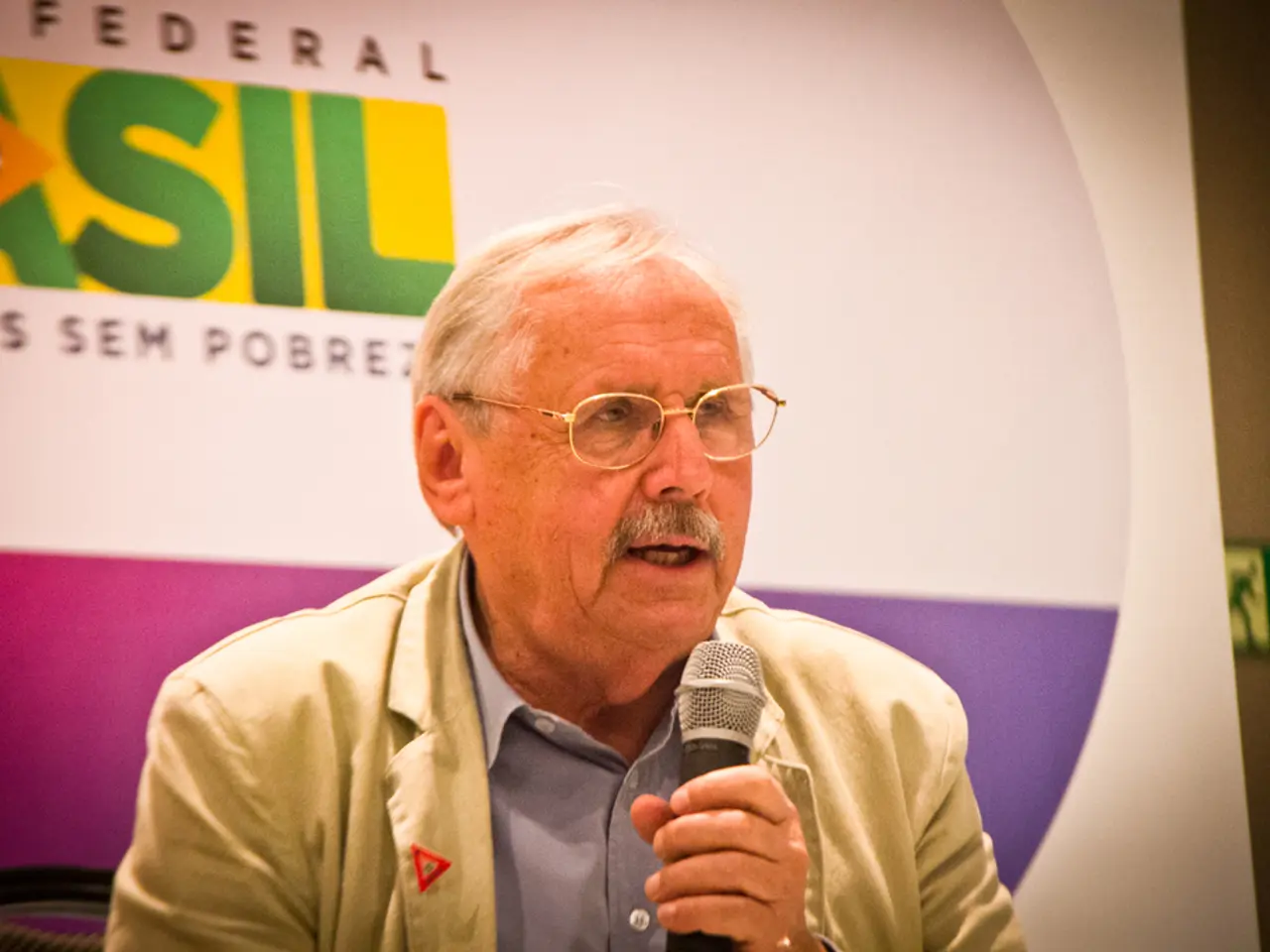Reminds of the fourth calamitous flood event anniversary - Observes Green on the fourth annual celebration of the flood event
The Ahr Valley, Germany, is set to commemorate the fourth anniversary of a tragic flood disaster on Monday, July 13th, at 7 p.m., with an ecumenical church service in the Kurpark, Bad Neuenahr-Ahrweiler. The event will be attended by Rhineland-Palatinate's Minister President Alexander Schweitzer (SPD), the mayor of Bad Neuenahr-Ahrweiler, Guido Orthen (CDU), and Katrin Eder (Greens), Rhineland-Palatinate's Minister for the Environment, among others.
Pia Schellhammer, chairwoman of the Green state parliamentary group, expressed her thoughts being with the victims, their families, and those still suffering from the consequences of the flood disaster. She emphasized the need for forward-looking adaptation to new risks, as she stated that the number of extreme weather events will increase due to climate warming.
The commemoration serves as a poignant reminder of the flood night, during which many lost their lives and homes. However, the focus is not solely on remembrance. The people of the Ahr Valley are assured they are not alone with their grief, as they have made significant strides in the reconstruction process. More than three billion euros have been approved for the reconstruction of the Ahr Valley, and many bridges, roads, and public buildings have been restored, enabling many residents to renovate or rebuild their homes with government support.
Despite these achievements, the reconstruction process has not been without its challenges. Critiques have been levied against the focus on compensating losses and damages, with insufficient attention paid to resilience building and the specific needs of vulnerable populations and sensitive infrastructures. For example, the "Lebenshilfehaus" care home in Sinzig suffered tragic losses during the flood, revealing vulnerabilities in evacuation and disaster response for people with disabilities. Similarly, the Levana School in Bad Neuenahr-Ahrweiler, a facility for children with special needs, was severely damaged, representing significant secondary damages to be considered in reconstruction plans.
As the Ahr Valley looks to the future, the need for a more comprehensive approach to crisis management and recovery is evident. In recent weeks, events at the RheinAhrCampus Remagen have highlighted this need, with expert discussions on better cooperation in the EU in crises following climate-related events, excursions to the Ahr Valley showcasing successful reconstruction projects, and a conference emphasising the European perspective on crisis prevention and early warning. These events have underscored the importance of climate adaptation, regional expertise, and European networking for more effective future responses.
As the Ahr Valley commemorates this tragic anniversary, it also looks towards a more resilient future, with a renewed commitment to addressing the challenges faced in the reconstruction process and working towards a more comprehensive approach to crisis management and recovery.
- In light of the upcoming anniversary, the community policy must emphasize the need for adaptation to new risks, particularly in the face of increasing extreme weather events due to climate change, as highlighted by Pia Schellhammer, the chairwoman of the Green state parliamentary group.
- The science of environmental-science should be integrated into the employment policy to ensure resilience building and to address the specific needs of vulnerable populations and sensitive infrastructures, as revealed by the tragic losses at the "Lebenshilfehaus" care home and the Levana School during the flood disaster.
- To facilitate more effective future responses, the focus of political discussions on climate-change, as showcased in the recent events at the RheinAhrCampus Remagen, should extended to include cooperation in the EU in crises following climate-related events, as well as early warning and crisis prevention, taking the European perspective into account.





